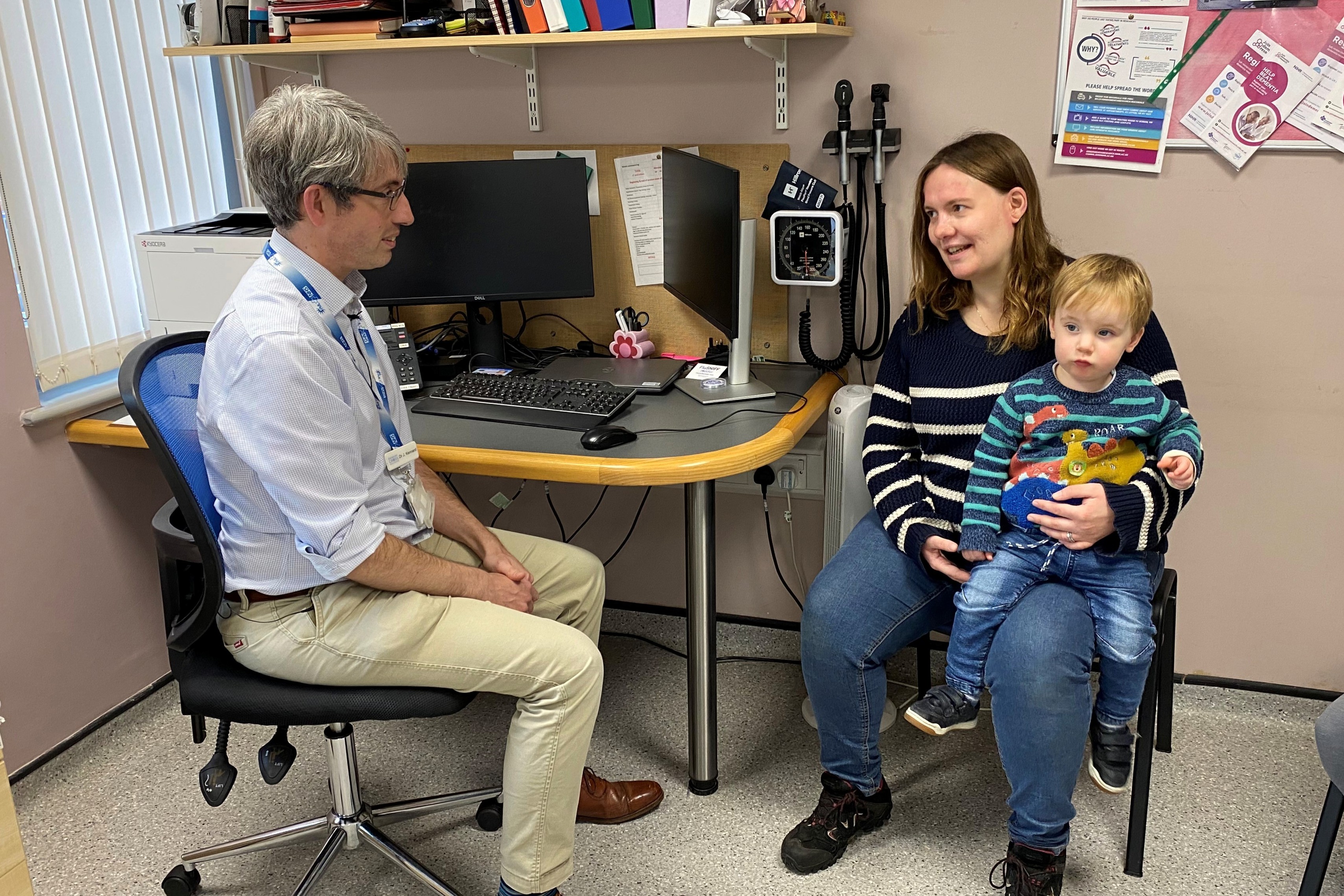Flu vaccine spray trial launches for children aged one
A clinical trial led by University Hospital Southampton and primary care services is now underway to test the nasal flu vaccine in one-year-old children.
The FluSNIFF study is inviting families to take part at around 100 GP practices across the UK. Three hospital sites are also taking part.
The trial is exploring whether the nasal spray flu vaccine, currently offered to children aged two and over, can be safely extended to younger toddlers. Researchers hope this could lead to wider protection against flu for children from as early as 12 months old.
Flu is a common virus that affects the lungs. While many people recover quickly, it can be dangerous for young children.
Every year, around two in every 1,000 children under-five in England are hospitalised due to flu-related complications, including severe lung infections and pneumonia. In some cases, children may need intensive care.
The NHS offers the nasal flu vaccine – called Fluenz – to children aged two and above. Younger toddlers currently only have access to flu protection via injection – and only if they are considered high risk.
The FluSNIFF-toddler trial will involve around 3,000 children aged between 12 and 23 months. Each child will receive the nasal flu vaccine at one of two appointments.
The study is funded by the National Institute for Health and Care Research (NIHR).
Professor Saul Faust, Co-Chief Investigator for the trial and Director of the NIHR Southampton Clinical Research Facility, said:
“Children under two years are the group who would likely benefit most from receiving the seasonal influenza vaccine, as they are the highest risk of developing severe disease.
“The nasal spray vaccine is already proven to be safe and effective in older children, and we’re now looking at whether it can be safely offered to younger toddlers. If successful, this trial could lead to the vaccine being available to all children aged 12 months and over in the next few years.”
The Fluenz vaccine is given as a quick spray into each nostril. It contains a weakened version of the flu virus that only works in the nose and cannot cause serious illness. Because it’s needle-free, it’s easier for children to tolerate and is often given in nurseries and schools.
The vaccine has already been shown to be effective in children aged 12 to 23 months in previous international trials, but more research is needed to confirm the vaccine is safe to offer to all children in this age group.
Dr Alasdair Munro, Co-lead investigator and an Academic Clinical Lecturer in Paediatric Immunology and Infectious Diseases at University Hospital Southampton, added:
“Children aged one are at the highest risk of being hospitalised with flu, yet they’re not currently offered the nasal vaccine. This trial is a vital step in making flu protection easier and more accessible for this vulnerable age group. Vaccination not only protects the child but also helps reduce the spread of flu to others.”
Ros Gough and her son Eddie are taking part in the Flu Sniff trial at Banbury Cross Health Centre.
She said: “I’ve had my flu jab for this year and when I got a text about this trial it seemed a great way to protect him and the rest of our family.

“I know that it’s the oldest and the youngest that are most vulnerable to flu, so extending greater protection to those groups would be a great thing. Hopefully in the near future all one-year-olds could be guarded against flu like Eddie this winter.”
By taking part, children will receive the nasal flu vaccine ahead of the winter season, giving them protection they wouldn’t normally have.
Participation is entirely voluntary, and families can withdraw at any time. For children taking part at their GP surgery, there are no blood tests involved. The study is designed to be as simple and stress-free as possible.
Families attend two short appointments at their local GP surgery, with a final follow-up via an online questionnaire. All children in the study will receive the vaccine – either at the first or second visit – and parents will be asked to complete brief electronic diaries to report any symptoms.
If your GP practice is participating in the study and your child is 12 to 23 months old, your GP will contact you with more information and an invitation to take part.